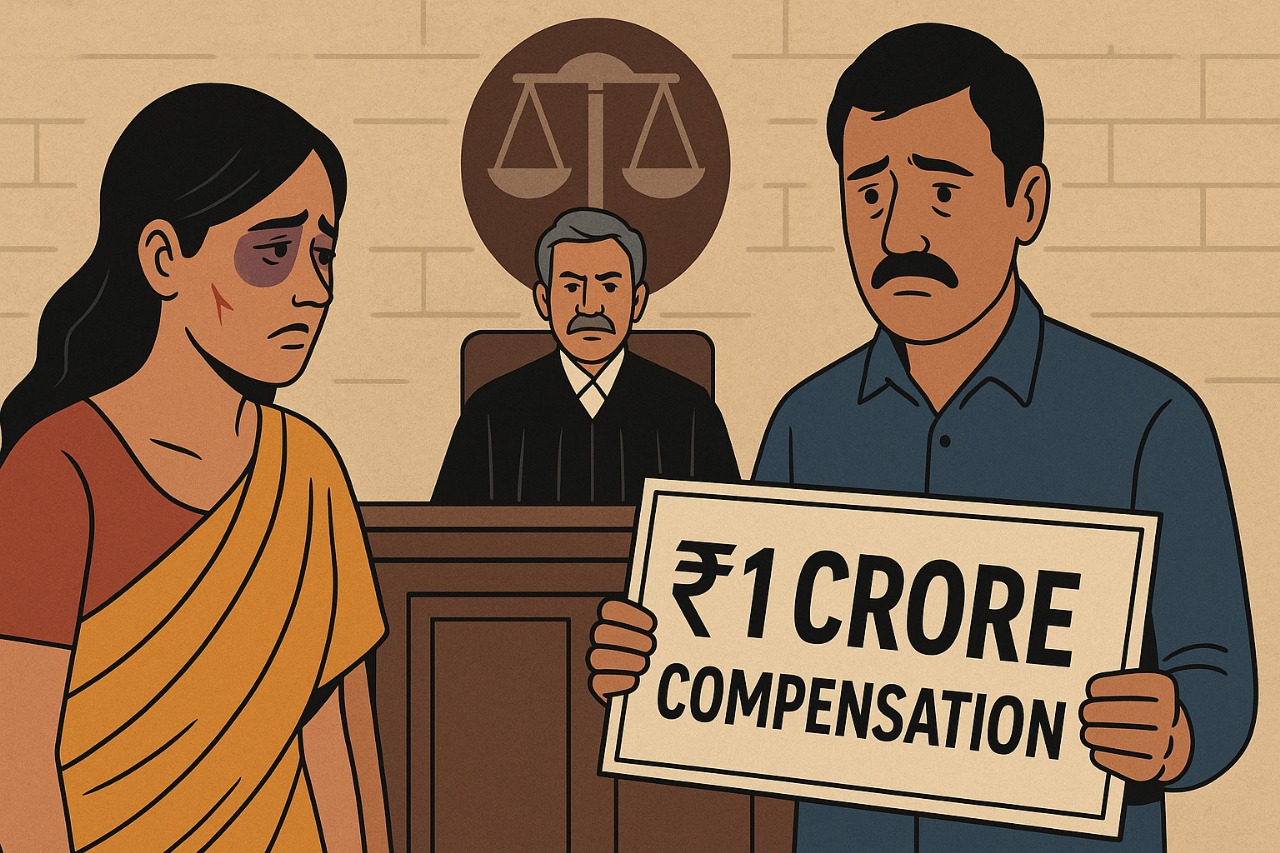Introduction
In a major leap towards gender justice and victim-oriented jurisprudence, a sessions court in Mumbai has granted ₹1 crore as compensation to a woman who was domestically abused by her wealthy husband. This judgment has made national headlines not just because of the enormity of the compensation amount but also because of the unequivocal message sent by the court regarding accountability and economic rights of abuse survivors.
Background of the Case
The case was about a woman who had complained under the Protection of Women from Domestic Violence Act, 2005, against her husband, a successful businessman owning a thriving elevator manufacturing business and a member of the “crorepati” class. The woman had been accused of physical, emotional, and psychological abuse over several years and sought protection, maintenance, and compensation under the Act.
At first, a magistrate had granted her ₹5 lakh as compensation for the abuse she suffered. But she appealed to the quantum of the award, contending that it was grossly insufficient in light of the severity of her ordeal and the husband’s considerable wealth.
Legal Outcomes
The Mumbai Sessions Court increased the compensation quantum significantly—from ₹5 lakh to ₹1 crore—stressing the fact that the economic condition of the abuser has to be taken into account while awarding monetary relief. According to the judge, rich abusers cannot be allowed to get away with less payments that do not consider the scale of harm inflicted or the dignity of the survivor. Besides, the court issued orders not to evict the woman and her daughter from their matrimonial home by the husband, safeguarding her right to shelter under Section 17 of the Domestic Violence Act.
This judgment is in concurrence with changing Indian jurisprudence, where courts are now even more openly identifying the right to compensation as a substantive remedy for victims, not just as a symbolic relief.
Conclusion
This historic verdict is a reaffirmation of the Indian courts’ zeal for upholding the rights and dignity of survivors of domestic violence. By linking the compensation with the financial status of the abuser, the court has inserted a necessary deterrent against opulent perpetrators. It also reaffirms that justice in domestic violence cases has to be symbolic as well as substantive.
The decision provides a precedent for future cases, in which fair compensation and effective protective steps are called for to redress the severity of abuse and restore the survivor’s sense of dignity, security, and agency.
About The Author
Agnimitra is a law student at the Department of Law, Hazra Campus, Calcutta University, Kolkata, with a growing passion for legal writing and research. Deeply interested in Intellectual Property Law, International Law, and issues related to Women and Child Safety, Agnimitra enjoys exploring how the law modernizes itself to the changing times of society. Whether it’s through writing articles or diving into legal debates, Agnimitra is always eager to understand and share the evolving nuances of the legal world.

